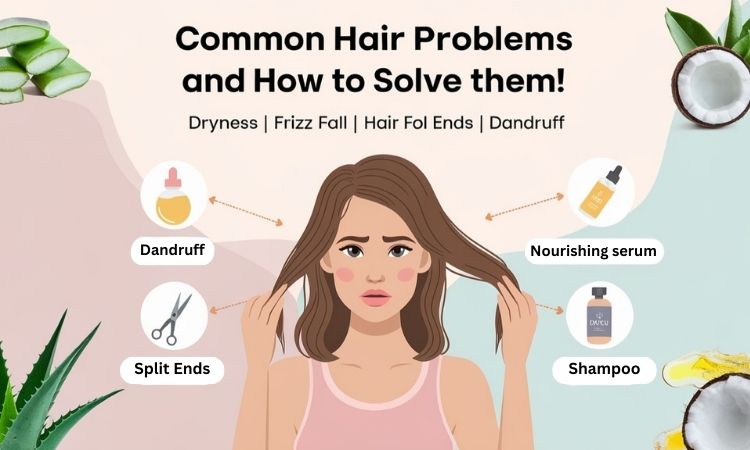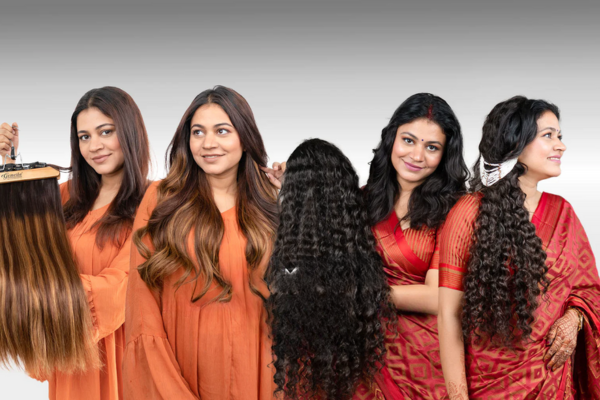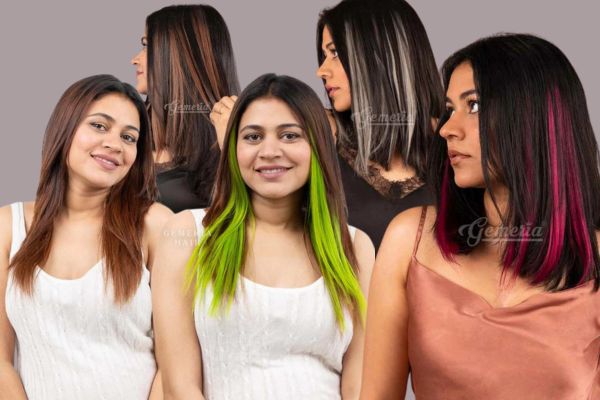Your hair is a canvas of beauty and personality, but it's not always smooth sailing. Hair problems can surface for various reasons, from environmental factors to lifestyle choices. But fret not, for most hair dilemmas have solutions.
In this comprehensive guide, we'll explore 10 common hair problems and share effective hair care effective strategies to conquer them, ensuring your locks remain as vibrant and healthy as ever.
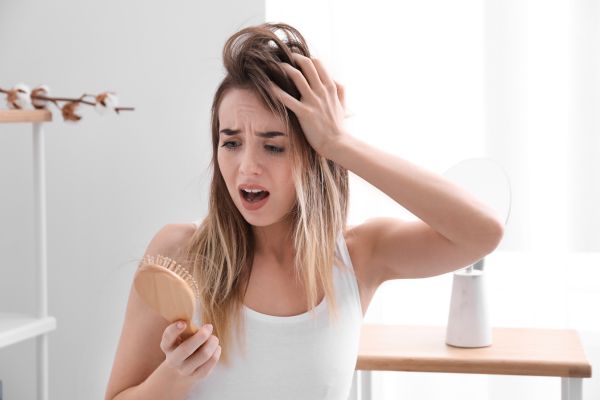
Let us look at common hair problems and how to solve them.
10 Most Common Hair Problems and Solutions
1. Split Ends: A Common Hair Problem

Problem: Split ends are a common issue for healthy hair. They occur when the protective outer layer of the hair is damaged or worn away, causing the hair to split into two or more strands.
Why do split ends happen? A number of things can lead to split ends, such as excessive heat style, severe chemical treatments, environmental damage, or dehydration.
How to solve split ends problem?
Trim Regularly: Get a trim every 6-8 weeks remove split ends and prevent them from travelling up the hair shaft.
Use deep conditioning treatments: To solve this hair problem, incorporate a deep conditioning treatment into your routine to strengthen and nourish your hair, reducing the risk of future splits.
2. Frizz Hair
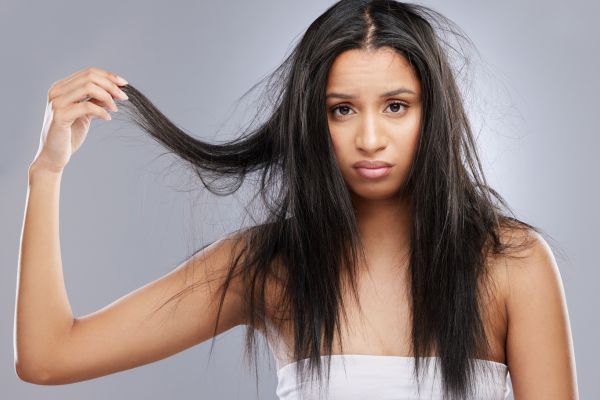
Problem: Frizzy hair often results from humidity, dryness, or damage. It’s defined by unruly, flyaway strands that are difficult to control.
Solution: Use a sulphate-free, hydrating shampoo and conditioner to combat dryness. Apply a leave-in conditioner or anti-frizz serum to tame flyaways. Avoid heat styling on high-humidity days, and consider a humidifier for your home.
3. Dandruff
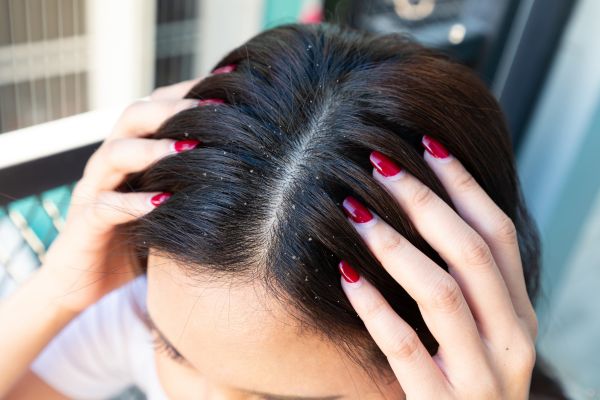
Problem: Dandruff is characterised by flaky, itchy scalp. It can be caused by dryness, an overproduction of oil, or a fungal infection.
Solution: Use an anti-dandruff shampoo with active ingredients like zinc pyrithione or ketoconazole for dandruff prevention control. Shampoo regularly but not excessively to maintain scalp health. If the issue persists, consult a dermatologist.
4. Hair Loss

Problem: Hair loss is a common problem for many people and people are constantly searching for solutions. But why does it happen? Let's take a look at the causes of hair loss.
hair loss can be triggered by many factors. Including genetics, hormonal changes, lack of vitaminB12, Omega, medical condition and stress. This can led to thinning hair or baldness.
Also Read: Hair Fall - Understanding and Preventing
Hair Loss Solution:
- Identify the underlying cause of hair loss, and seek professional advice. Treatments range from medications like minoxidil to procedures like hair transplantation.
- If you want to address the issue of hair loss naturally, you can control hair fall through diet or scalp massages.
- You can use a hair piece as a temporary solution. Hairpieces are generally designed to cover thinning hair in both men and women.
- Most are made from human hair or synthetic hair. If your hair loss is excessive and you need a timely and effective solution. Using a hair topper is the best option.
5. Oily Scalp
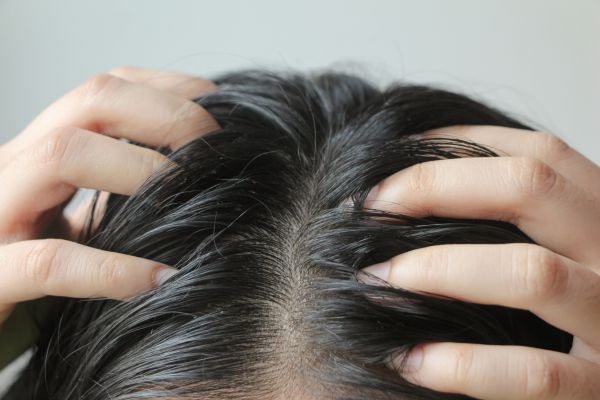
Problem: Excess oil production can leave your scalp greasy, weighing down your hair and making it appear flat an
Solution: Use a clarifying shampoo to remove excess oil and product buildup. Avoid overwashing, which can trigger increased oil production. Consider a dry shampoo between washes to absorb excess oil.
Also Read: Mastering the Art of Hair Shampooing
6. Dry Hair
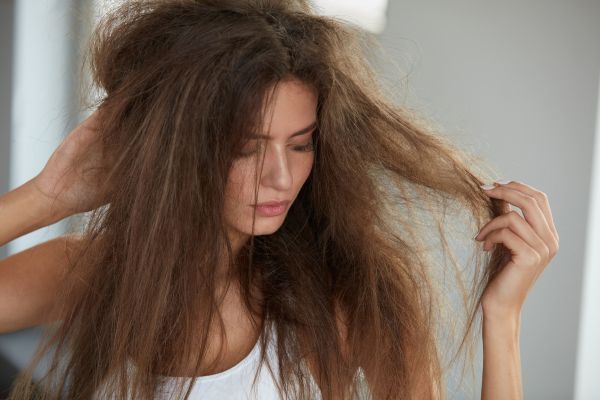
Problem: Dry hair lacks moisture and can become brittle, dull, and prone to breakage.
Solution: Hydrate your hair with a moisturising shampoo and conditioner. Incorporate deep conditioning treatments or hair masks weekly to restore moisture. Avoid excessive heat styling and opt for air drying when possible.
7. Thinning Hair
Problem: Thinning hair is often linked to genetics, age, and hormonal changes. It can result in a less voluminous appearance.
Solution: Consult a healthcare professional or dermatologist to explore potential treatments, such as minoxidil or prescription medications. Consider volumizing hair products to create the illusion of thicker hair.
8. Hair Damage After Coloring: Causes and Solutions
Problem: Colouring your hair can lead to damage, including dryness, breakage, and fading.
Solution: Use colour-safe shampoos and conditioners to preserve your colour. Reduce the frequency of colour treatments to allow your hair to recover. Incorporate products designed to repair and strengthen coloured hair.
9. Hair Damage from Heat
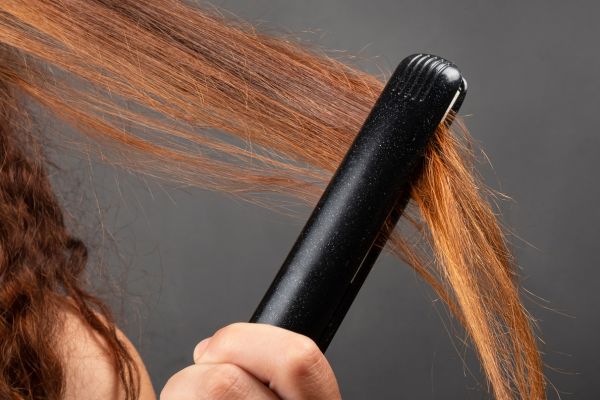
Problem: Excessive heat styling can weaken and damage your hair, leading to breakage, split ends, and loss of shine.
Solution: Use heat protectant products before styling. Limit heat styling to lower temperatures and less frequency. Embrace heatless hairstyles when possible.
10. Lack of Volume
Problem: Flat, lifeless hair can be attributed to genetics, overwashing, or product buildup.
Solution: Choose volumizing shampoos and conditioners. Use lightweight styling products that add volume without weighing your hair down. Try teasing your hair or using root-lifting products for more volume.
By recognizing these common hair problems and implementing these solutions, you can address your hair concerns effectively and maintain a healthy, vibrant mane. Remember that consistency and patience are key, and for persistent or severe issues, consult with a professional for personalised advice and treatments.
Additional Tips for Maintaining Beautiful Hair
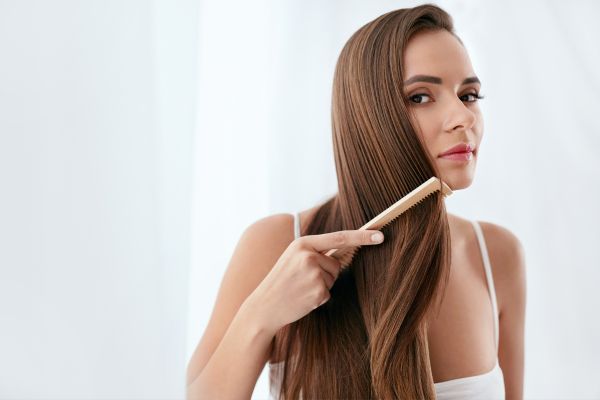
Beyond addressing specific problems, it's essential to maintain a holistic approach to hair care. Here are some additional tips to achieve smoother hair and keep your locks in top shape:
Healthy Diet to Prevent Hair Problems
A balanced diet rich in vitamins and minerals, particularly biotin, vitamin E, and omega-3 fatty acids, supports hair health.
Gentle Handling
Handle your hair gently, especially when it's wet. Use a wide-toothed comb to detangle and avoid excessive rubbing with a towel.
Scalp Massage
Massaging your scalp during shampooing stimulates blood flow, promoting hair growth.
Also Read: Homemade Hair Serums and Masks: Unlock the Secret to Lustrous Hair
Hydration
Staying well-hydrated is crucial for overall hair health. Drinking enough water keeps your hair and scalp adequately moisturised from within.
Manage Stress for Healthy Hair
Chronic stress can contribute to hair problems. Practice stress-reduction techniques like yoga, meditation, or deep breathing exercises.
Avoid Harsh Chemicals
Limit the use of harsh hair products and chemical treatments, as they can strip your hair of its natural oils and cause damage.
Protect from Environmental Factors
Shield your hair from harsh sunlight, chlorine, and saltwater, which can all contribute to damage.
With these additional tips and a proactive approach to hair care, you'll be well on your way to maintaining luscious, healthy hair that turns heads and boosts your confidence.
Conclusion
Your hair is an essential part of your identity and self-expression. While hair problems can be frustrating, they are not insurmountable. By understanding the causes and implementing these solutions, you can address common hair concerns effectively.
Remember that maintaining healthy hair is an ongoing commitment. A well-rounded approach to hair care involves not only addressing specific issues but also adopting a lifestyle that promotes hair health. Eating a balanced diet, staying hydrated, managing stress, and avoiding harsh chemicals all contribute to the vitality and beauty of your locks.
In your journey to conquer hair problems, patience and consistency are your allies. Be kind to your hair, handle it gently, and give it the care it deserves. Whether you're dealing with split ends, frizz, or thinning, there's a solution tailored to your needs.
Ultimately, your hair is a reflection of your overall health and well-being. A vibrant, healthy mane boosts your confidence and complements your style. Embrace these tips, and you'll not only solve common hair problems but also nurture your crowning glory to its fullest potential. Your hair deserves nothing less.
Also, you can opt for hair wigs and extensions to enhance your look. Visit our website to check out a variety of hair accessories available at low prices.
Frequently Asked Questions (FAQs)
Addressing Your Hair Care Questions related to the blog!
1. How often should I trim my hair to prevent split ends?
Ans: It's recommended to trim your hair every 6-8 weeks to prevent split ends and maintain healthy hair.
2. Can I use regular shampoo for coloured hair?
Ans: While you can, it's best to use colour-safe shampoos and conditioners to preserve your hair colour's vibrancy.
3. What can I do to promote hair growth?
Ans: Scalp massages, a balanced diet, and hair growth treatments can help promote hair growth.
4. How can I reduce frizz in humid weather?
Ans: Use anti-frizz products, such as serums or leave-in conditioners, and avoid excessive heat styling on humid days.
5. Is it better to air dry or blow-dry my hair?
Ans: Whenever possible, air drying is gentler on your hair. Use a low heat setting when blow-drying to minimise damage.
6. What are the most common causes of dandruff?
Ans: Dandruff can be caused by dryness, oily scalp, or fungal infections. Use anti-dandruff shampoos with suitable ingredients to address the specific cause.
7. Is it okay to wash my hair every day?
Ans: Washing your hair daily can strip it of natural oils, leading to dryness. It's best to shampoo every 2-3 days or as needed.
8. Can stress cause hair loss?
Ans: Yes, chronic stress can contribute to hair loss. Practising stress management techniques can help mitigate this.
9. What's the best way to protect hair from heat damage?
Ans: Use heat protectant products before styling and avoid excessive heat. Opt for heatless hairstyles when possible.
10. Are there natural remedies for thinning hair?
Ans: Natural remedies like aloe vera, onion juice, and essential oil treatments may help with hair thickness. However, consult with a healthcare professional for personalised advice.
These frequently asked questions cover a range of common hair concerns. Remember that individual hair needs can vary, so it's essential to tailor your hair care routine to your unique situation and preferences.

